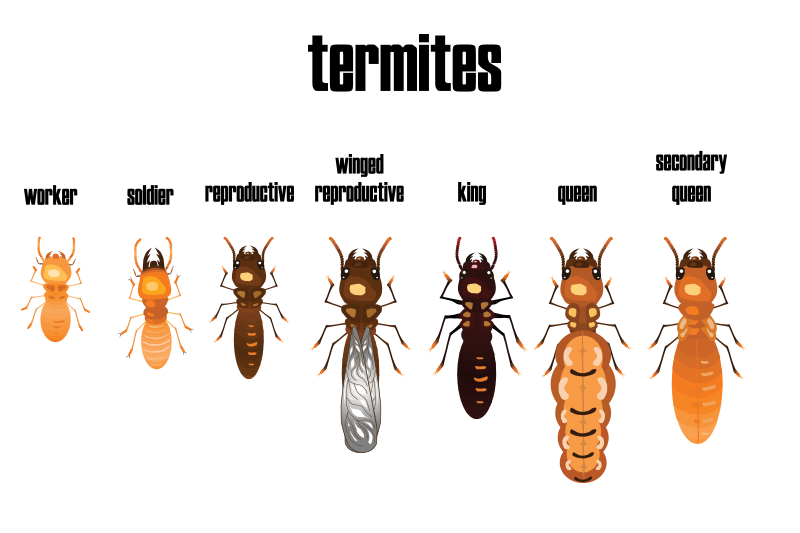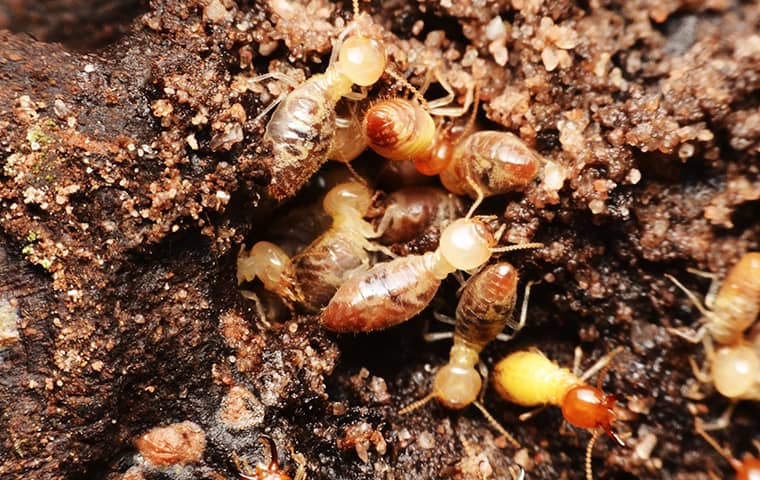Ecological Effect of Insect Control: Harmonizing Effectiveness With Sustainability
The ecological effect of pest control is an important concern that calls for a delicate equilibrium in between achieving performance in handling bugs and ensuring sustainability of our ecosystems. As we strive to shield our plants, homes, and wellness from the threats postured by bugs, the methods we use can inadvertently hurt the setting. From using harmful chemicals that seep into our soil and water to the unexpected consequences on non-target varieties, the repercussions of conventional bug control techniques are far-reaching. Nonetheless, there are arising approaches that offer hope for a more sustainable technique to pest administration. These services not only goal to attend to the prompt bug problems but likewise consider the long-term health and wellness of our world.
Dangerous Chemicals in Parasite Control
The usage of unsafe chemicals in bug control presents considerable environmental and health threats that warrant mindful factor to consider and reduction methods. Insecticides, herbicides, and chemicals are commonly utilized to get rid of insects, but their widespread application can result in unexpected consequences. These chemicals can contaminate dirt, water resources, and the air, influencing not just the targeted pests yet likewise valuable bugs, wildlife, and humans.

To attend to these risks, incorporated parasite monitoring (IPM) techniques are being advertised as a much more lasting alternative. IPM involves a combination of techniques such as biological control, environment adjustment, and the targeted usage of pesticides as a last resource (ant control gastonia nc). By adopting an all natural strategy to pest control, we can decrease the ecological and health influences connected with harmful chemicals while properly taking care of pest populations
Effect on Non-Target Variety
Considering the unexpected consequences of insect control techniques, the effect on non-target types is a critical element that requires thorough analysis. While pest control measures aim to target certain parasites, various other microorganisms in the ecosystem may be inadvertently impacted. Non-target types, including beneficial bugs, birds, animals, and even plants, can endure direct or indirect injury from chemical applications or biological control approaches.
Pesticides developed to combat a particular insect pest may damage pollinators like bees or all-natural predators such as ladybugs. Biological control representatives, if not species-specific, can present dangers to unexpected targets, interrupting the eco-friendly equilibrium.
To mitigate the influence on non-target types, integrated insect administration (IPM) approaches that stress an all natural strategy to pest control are advised. These methods focus on the usage of environmentally pleasant methods, minimizing harm to advantageous microorganisms while effectively taking care of pest populations. Performing complete threat analyses and monitoring the end results of bug control initiatives are essential action in protecting non-target varieties and promoting overall ecological community health.
Soil and Water Contamination
Unintended ecological repercussions of insect control approaches prolong past affecting non-target varieties, with substantial implications for dirt and water contamination. Chemicals, herbicides, and chemical fertilizers made use of in bug control can seep right into the dirt and pollute groundwater, posturing a danger to both terrestrial and marine ecological communities. Soil contamination can disrupt the equilibrium of microorganisms vital for nutrition biking and plant growth, causing lowered dirt fertility and productivity. In addition, these chemicals can continue the setting for prolonged periods, collecting in the soil and possibly going into the food chain.
Water contamination is one more critical concern related to insect control methods. Runoff from farming areas treated with chemicals can bring these chemicals right into close-by water bodies, affecting water organisms and water high quality. Impurities in water resources can have far-reaching consequences, impacting not just aquatic life however also human wellness with the consumption of contaminated water or water organisms. To mitigate soil and water contamination from insect control activities, integrated pest administration approaches that focus on sustainability and reduce chemical inputs are vital.
Air Pollution From Chemical Use
Exposure to air-borne pesticides during farming applications postures a substantial worry for air pollution control procedures. Furthermore, pesticide drift, where chemicals are lugged by the wind to unintentional areas, can lead to the contamination of close-by environments and water bodies.

Techniques for Sustainable Pest Control
In the realm of farming techniques, applying sustainable insect control techniques is extremely important for maintaining ecological balance and securing crop returns. Sustainable bug control stresses using eco pleasant methods to handle pest populaces efficiently while decreasing damage to non-target organisms and ecological communities. Integrated Pest Management (IPM) is a commonly embraced technique that integrates biological, cultural, physical, and chemical control approaches to attain lasting bug monitoring remedies.
One key strategy in sustainable pest control is promoting biodiversity within agroecosystems. By boosting natural enemies of insects, such as parasitoids and killers, farmers can minimize the demand for synthetic chemicals. Plant rotation and diversity are also effective techniques to disrupt pest life cycles and develop much less desirable problems for insects to thrive. In addition, utilizing pest-resistant plant ranges and using strategies like catch cropping can help in reducing insect stress without depending heavily on chemical treatments. read the full info here Inevitably, by incorporating these lasting insect control approaches, farmers can achieve an equilibrium in between pest management efficiency and environmental stewardship.
Verdict
To conclude, the ecological influence of pest control techniques must be meticulously taken into consideration to balance efficiency with sustainability. Unsafe chemicals used in insect control can result in soil and water contamination, air pollution, and harm non-target species - termite control. It is crucial to implement lasting insect control methods to minimize these adverse results on the atmosphere and promote a much healthier ecological community for future generations
By adopting an all natural approach to pest control, we can decrease the ecological and wellness influences associated with damaging chemicals while efficiently handling pest populations.

To alleviate the air pollution triggered by chemical use, it is necessary to adopt integrated parasite management methods that focus on the use of non-chemical bug control approaches, such as crop rotation, all-natural predators, and immune crop varieties. Lasting parasite control highlights the use of eco friendly techniques to take care of pest populations successfully while minimizing harm to non-target organisms and ecosystems. Integrated Insect Administration (IPM) is an extensively taken on approach that combines biological, social, physical, and chemical control approaches to achieve long-term insect monitoring services.
Comments on “Budget Friendly Ant Control Solutions: Keep Your Space Ant-Free”